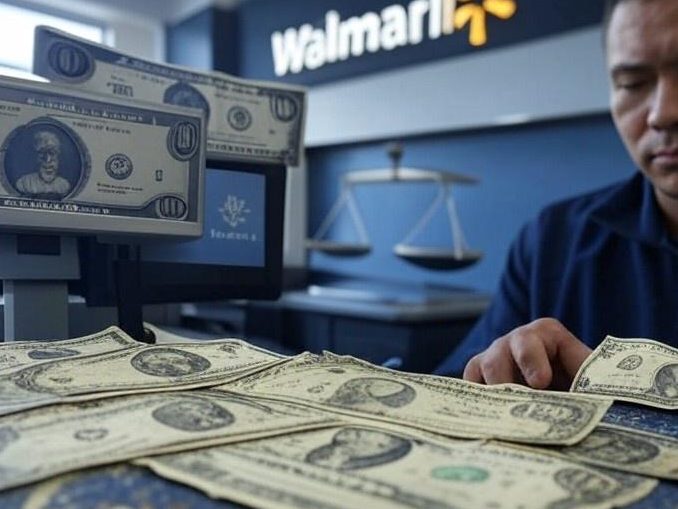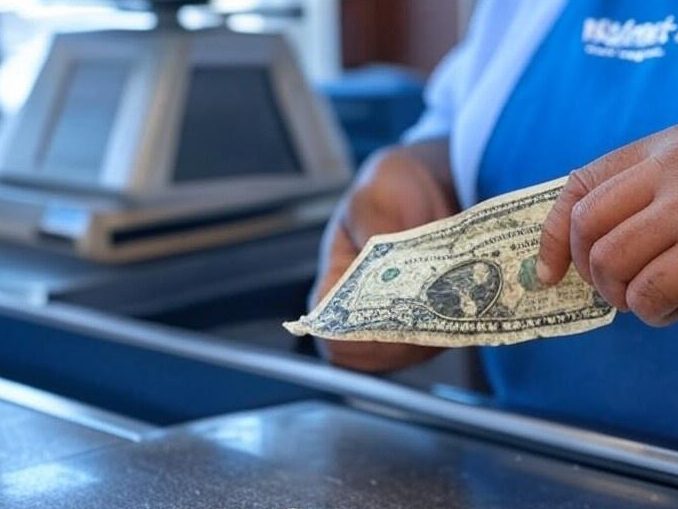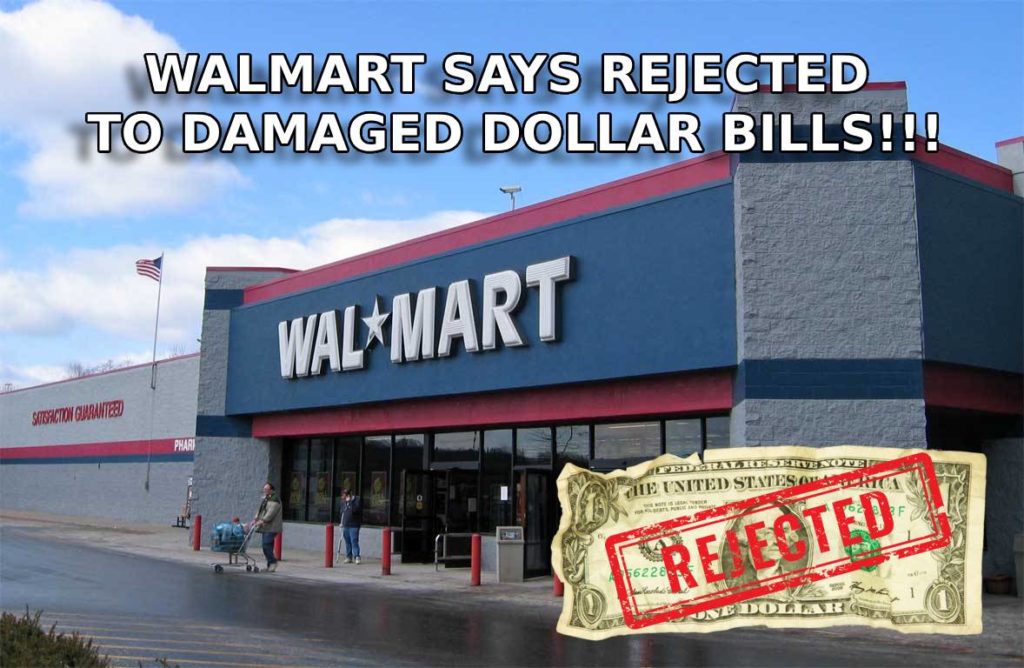Disclaimer: This OpEd reflects the views of the author and does not necessarily represent the views of Appalachia Insider as an organization.
Table of Contents
Walmart’s Policy: What is Legal Tender?
When you hand over a dollar bill at the checkout counter, you don’t expect to worry about whether it will be accepted. A dollar is Legal Tender, after all—a promise from the U.S. government that the currency in your hand is valid. But Walmart’s recent decision to reject one-dollar bills with visible damage has thrown that simple exchange into question. What seems like a routine policy to improve transaction efficiency hides a much larger issue: the creeping influence of private corporations into areas that should remain the exclusive domain of government.
By refusing certain forms of legal tender, Walmart is doing more than creating a headache for customers—it’s challenging the very idea of what makes money “money.” And in doing so, it raises unsettling questions about where corporate power ends and public authority begins.

Who Should Decide What Money Is Acceptable?
In the United States, the Department of the Treasury and the Federal Reserve are the gatekeepers of our monetary system. They decide what makes a bill valid and ensure that all issued currency—whether crisp or worn—is legally acceptable for transactions. This central authority is essential for maintaining trust and consistency in the economy.
Walmart’s policy undermines that trust. By deciding which bills it will or won’t accept, the company has effectively inserted itself into the role of arbiter over legal tender. The implications are staggering. If one corporation can rewrite the rules, what’s to stop others from doing the same? The result would be a fragmented monetary system, where the universality of the dollar—the bedrock of the U.S. economy—is eroded.
A New Burden on Cash Users
For many consumers, cash isn’t just a payment option—it’s a necessity. Millions of Americans rely on cash as their primary means of transaction, often because they lack access to banking or digital payment systems. Walmart’s policy creates a new hurdle for these individuals, forcing them to ensure their money meets an arbitrary standard before they can buy basic goods.
The consequences are real. Imagine being turned away at the checkout counter because your dollar bill has a small tear or some faded ink. This isn’t just an inconvenience; it’s a direct attack on the principle that legal tender should be universally accepted. For those who live paycheck to paycheck, these small indignities add up, creating barriers where none should exist.

The Larger Threat to Trust in Cash
The acceptance of cash in all its forms is fundamental to the integrity of the monetary system. Walmart’s policy represents more than a shift in operational practice—it’s a challenge to the idea that cash is reliable, universal, and equal.
If this precedent spreads, it could accelerate the transition away from cash, pressuring consumers to adopt digital payments whether they’re ready or not. While some may embrace this shift, many others would lose the anonymity, simplicity, and accessibility that cash provides. This isn’t a natural evolution—it’s a corporate nudge toward a system that prioritizes profit over people.
Who benefits? Corporations do. Digital transactions generate fees and provide valuable consumer data. Cash, by contrast, costs nothing to process and leaves no trail. Walmart’s policy may seem minor, but it subtly aligns with a broader corporate push to make cash less viable—and to make consumers more dependent on systems that serve business interests first.
Reasserting the Role of Government
The solution is clear: the government must reaffirm its role as the sole regulator of currency. Legal tender, regardless of condition, must remain universally accepted. Allowing corporations to set their own standards undermines public confidence and shifts power away from democratic institutions.
If Walmart’s policy becomes the norm, it’s not just the monetary system that suffers. It’s the everyday consumer—particularly the most vulnerable—who bears the cost. Lawmakers should consider measures to ensure that legal tender is treated as such in every transaction, regardless of corporate preferences.
This isn’t just about damaged dollar bills. It’s about the balance of power between public governance and private enterprise. Walmart’s overreach highlights the need for vigilance in protecting the integrity of our currency and the trust it represents. If we want a fair and functional system, the rules of money must remain in the hands of the people—not the corporations.
~CA

